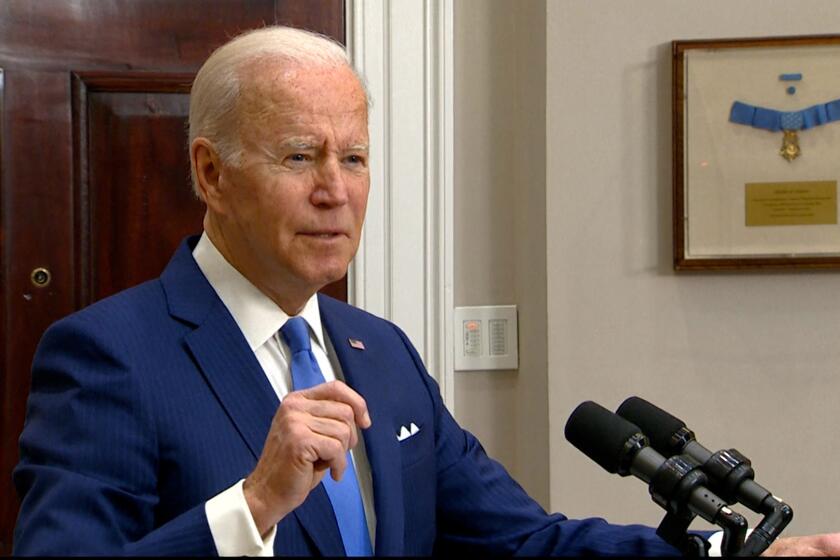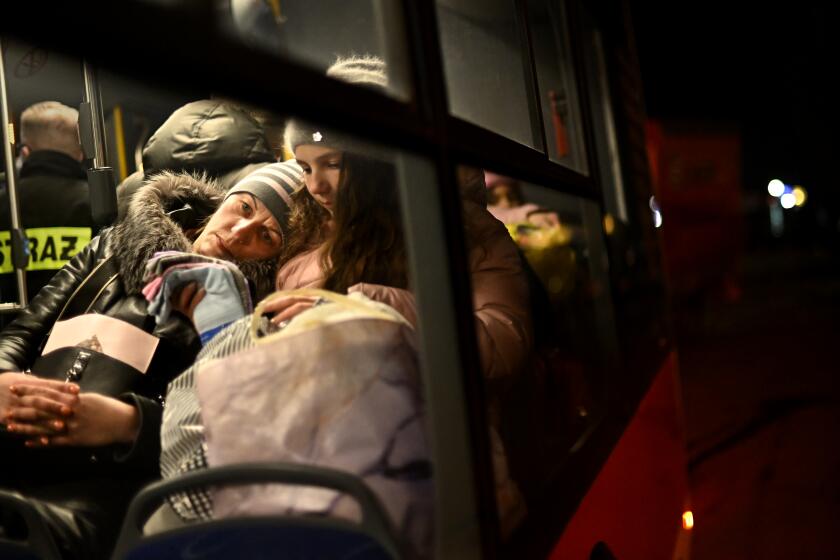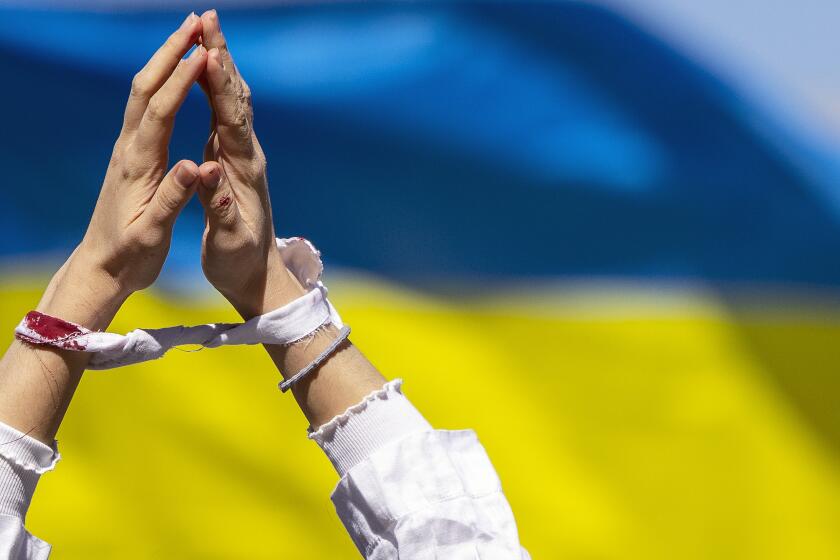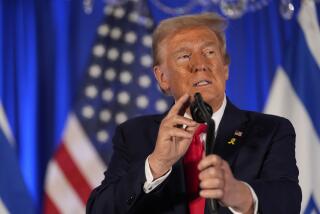Inside the dramatic U.S.-Russia prisoner swap: An Oval Office visit, a Moscow trip
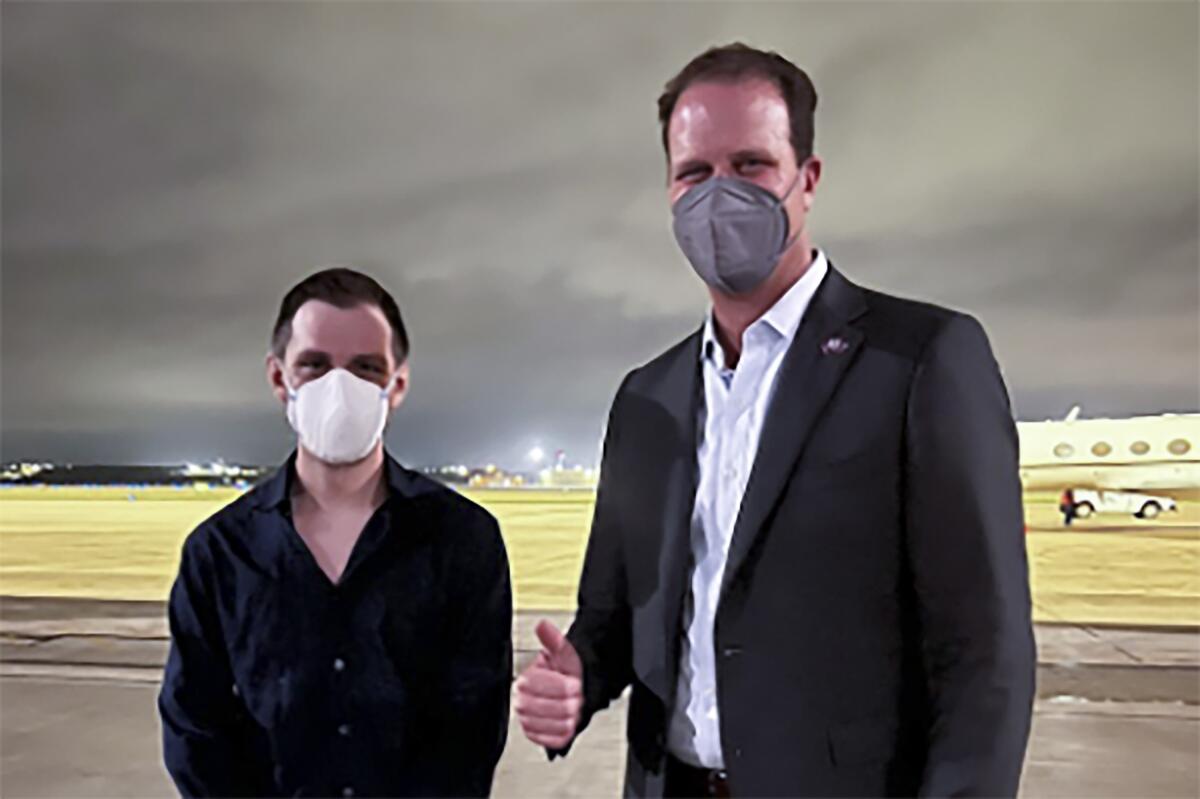
WASHINGTON — The worst possible moment for bringing Trevor Reed home turned out to be the best.
With U.S.-Russian relations at their lowest point in decades because of the war in Ukraine, it seemed an improbable time to hope for the release of Reed, a former Marine imprisoned in Russia for almost three years. Yet this week the Biden administration completed the type of transaction it had earlier seemed resistant to, exchanging Reed for Konstantin Yaroshenko, a Russian pilot and drug trafficker serving a 20-year prison sentence in Connecticut.
A series of events and considerations in the last two months helped facilitate the swap, including escalating concerns over Reed’s health, a private Oval Office meeting between his parents and President Biden and a secretive Moscow trip by a former diplomat on the cusp of Russia’s Feb. 24 invasion of Ukraine.
“All those three forced the White House to make a decision that they hadn’t made before,” said Mickey Bergman, vice president at the Richardson Center for Global Engagement.
How the war — and the breakdown in U.S.-Russian relations — affected the deal isn’t clear. U.S. officials stressed that the negotiations for Reed’s release were narrow in scope, focused squarely on the prisoners and not on Russia’s war and not reflective of any broader diplomatic engagement. But while the timing of the deal was startling, it’s clear that the groundwork for it had been laid before the war began.
“I did it,” Biden told reporters Wednesday about the deal. “I raised it. I raised it three months ago.”
President Biden vows anew that the U.S. is committed to ensuring Ukraine’s ultimate victory against Russia in a war likely to drag on for months.
Just as the war was about to commence, Bergman and his colleague, Bill Richardson, a former U.S. ambassador to the United Nations and ex-New Mexico governor, flew to Moscow on the plane of FedEx Chief Executive Fred Smith for a meeting with Russian government officials. It was a continuation of negotiations they’d been having for the release of Reed and another jailed American, corporate security executive Paul Whelan.
They left with the contours in place for the one-for-one swap that took place.
In Texas, Joey and Paula Reed were worrying that Russia’s war with Ukraine, and resulting tensions with the U.S., could close off communication channels and foreclose common ground in talks on their son’s release. In meetings with administration officials in the last year — including with the Justice Department, which prosecuted Yaroshenko — the couple expressed support for a swap but said they weren’t led to think that was a viable option.
“They didn’t say: ‘Oh, we agree with you, that’s a great deal, that’s a good point,’” Paula Reed said in March. “They didn’t say anything like that. They just said: ‘We hear you. Thank you very much.’”
Poland has taken in more Ukrainian refugees than all other countries combined. In Warsaw, where 300,000 arrived, a city’s life is transformed.
But weeks into the war, the couple did something that got the White House’s attention.
As Biden traveled to Texas to support veterans, the Reeds stood along the motorcade route in hopes of getting meaningful face time with the president. That didn’t happen, though he did speak by phone with the couple. Later that month, they arrived in Washington and stood with signs near the White House, hoping again to meet Biden.
This time, they were invited into the Oval Office for a sit-down with Biden and other officials. The White House issued a statement that night reiterating its commitment to getting Reed and Whelan home, an issue that senior officials had raised in private meetings with Russian leaders.
The meeting was a rare bit of presidential access for the family of an American detainee, especially since Biden has been less public than former President Trump about efforts to get Americans home. Behind the scenes, Biden and Secretary of State Antony J. Blinken were raising the cases with the Russians, and Roger Carstens, the special presidential envoy for hostage affairs, was working on the issue as well.
In a country that has harbored deeply pacifist beliefs since the end of World War II, a majority of Germans oppose taking a tougher stance against Russia.
Hovering in the background was Reed’s health. In March, Reed told his parents that he’d been coughing up blood several times a day, had pain in his lung and a broken rib. Last year, he contracted COVID-19.
On Wednesday, his parents were taken aback by how thin their son looked during video of the transfer. They said they expected that he’d need medical care before resuming his daily life in Texas.
Those health issues also alarmed U.S. officials.
“That, I think, contributed to really ratcheting up the conversations on this issue, getting to a point where we were able to make this arrangement, getting to a point where we were able to turn to some of the logistics of simply getting it done,” a senior administration official told reporters in a background briefing this week.
Separately, a lawyer for Yaroshenko has said his client also had health problems and tried in 2020 to have him freed early from his 20-year sentence on compassionate-release grounds because of the pandemic.
News Alerts
Get breaking news, investigations, analysis and more signature journalism from the Los Angeles Times in your inbox.
You may occasionally receive promotional content from the Los Angeles Times.
Left out of any deal were Whelan, who is serving a 16-year sentence on espionage-related charges that his family says are fabricated, and Brittney Griner, a WNBA star detained in February after Russian authorities said a search of her bag revealed a cannabis derivative.
The Whelan family said in a statement that it was happy about Reed’s release but troubled that Whelan wasn’t part of it.
“Paul has already spent 3 and a quarter years as a Russian hostage,” the statement said. “Is President Biden’s failure to bring Paul home an admission that some cases are too hard to solve? Is the Administration’s piecemeal approach picking low-hanging fruit?”
Richardson, who has helped facilitate releases of American detainees and hostages in recent years, said the Biden team deserves recognition for authorizing this particular swap at a time when U.S.-Russia relations were so low.
“It doesn’t matter who gets credit,” Richardson said, “as long as hostages like Trevor Reed are home.”
More to Read
Sign up for Essential California
The most important California stories and recommendations in your inbox every morning.
You may occasionally receive promotional content from the Los Angeles Times.
